The Houses of Nablus Writers and Scholars Event
It was not in our mind that the house of the Scholar Qadri Toukan and the two nationalist poets Ibrahim and Fadwa Tuqan to be in the Old City of Nablus, To be chosen with the aim of reviving it and to enhance the cultural identity in recognition of their achievements that have extended beyond the Palestinian homeland to the Arab world as a whole, And on the search trip, we discovered what didn’t come to our mind, This house, which was planned to be a collector of the most important artifacts and collectibles of the mark and poets, And after the follow-up and maintenance, It was stolen and vandalized during the Second Upraising (Intifada), which lost much of the Palestinian cultural identity.
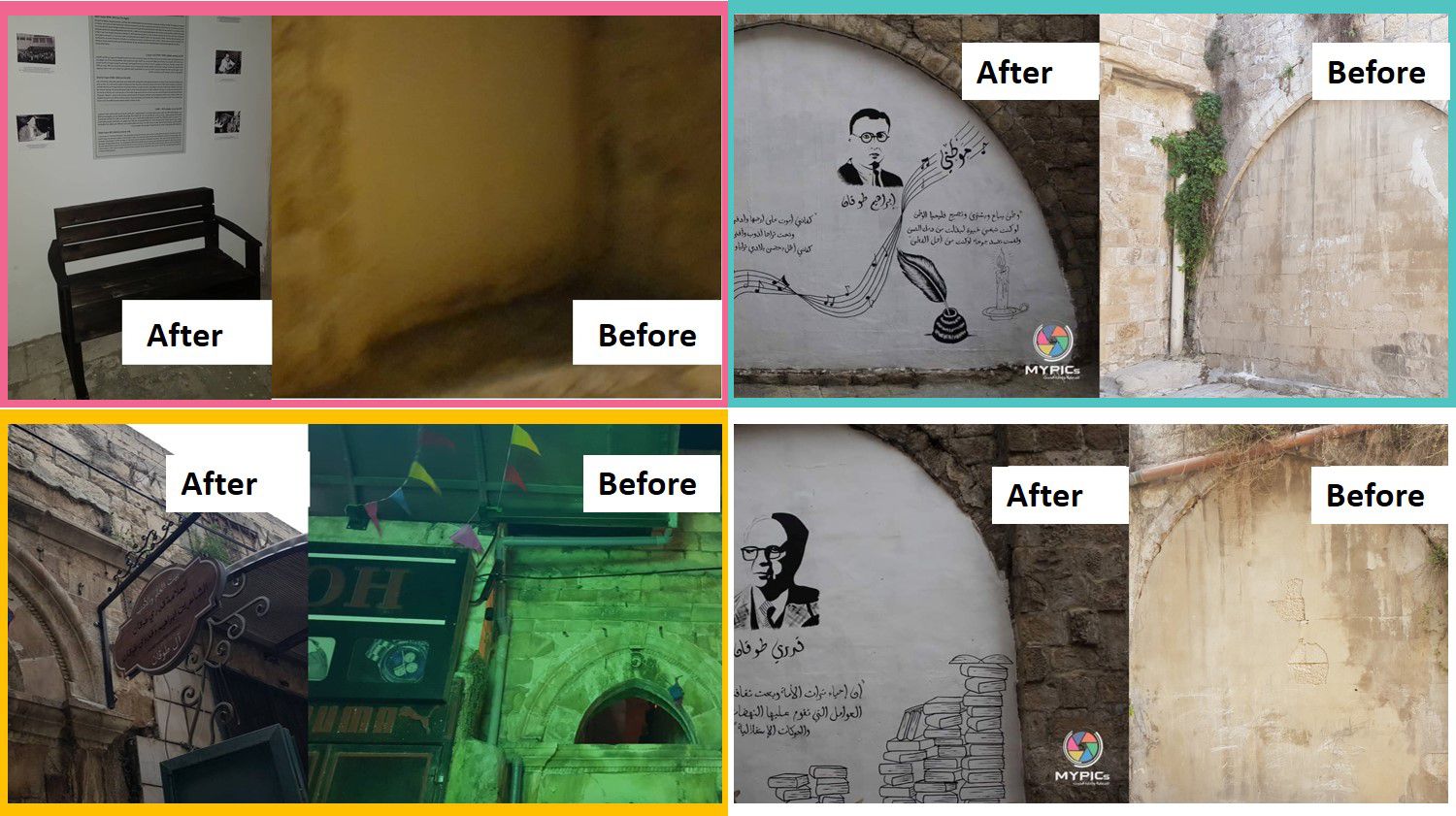
It is the responsibility placed on us as part of a stone-and-story initiative, A group took the initiative hand in hand for change and under the auspices of the Dean of the Tuqan family Mr. Farouk, In partnership with The Sa’ad Initiative, the event was organized to revive the homes of Nablus writers and scholars, which started with the house of The Mark Qadri Toukan and the poets Ibrahim and Fadwa Toukan, by organizing a mural using pop art and an introductory angle about writers and poets, And after a clean-up and beautification of the place, This work was crowned with a ceremony that included an introductory tour of the house and its facilities and its history through Ms. Rima Kilani, a close relative of the first-class poets, The vandalism of the house was highlighted, This is in addition to my poetry about writers, a cultural question-and-answer paragraph and a beautiful musical paragraph.
Watch part of the event on Palestine TV report
Also watch the Vision TV report.
About The Scholar Qadri Toukan (1910-1971)
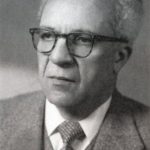 He was born in Nablus and grew up here, He received a bachelor’s degree in mathematics from the American University of Beirut in 1929. He worked as a teacher in Nablus, He was active in the Palestinian National Movement and was later arrested by the British authorities for his political activities. He co-founded Al-Najah College in Nablus and served as its head of management until 1950, when he was elected as a member of the Jordanian Parliament to represent Nablus from 1951 to 1955. He continued his activities until he was appointed Foreign Minister in Jordan in 1964, then continued his studies and obtained his Doctorate in Law from Pakistan in 1967.
He was born in Nablus and grew up here, He received a bachelor’s degree in mathematics from the American University of Beirut in 1929. He worked as a teacher in Nablus, He was active in the Palestinian National Movement and was later arrested by the British authorities for his political activities. He co-founded Al-Najah College in Nablus and served as its head of management until 1950, when he was elected as a member of the Jordanian Parliament to represent Nablus from 1951 to 1955. He continued his activities until he was appointed Foreign Minister in Jordan in 1964, then continued his studies and obtained his Doctorate in Law from Pakistan in 1967.
Toukan was president of the Jordanian Society of Science, He was a famous philosopher and author of many books, Including the dimensions of the 1950 nakba, Recalling past glories and contributions to the global civilization of the Arabs in an attempt to restore confidence in their countries. He also has intellectual contributions in various fields of Arabic scientific literature, And science and the Arabs, And the Arab mentality. He received the first-class Republican Medal from Egyptian President Gamal Abdel Nasser
About the poet Ibrahim Touqan (1905-1941)
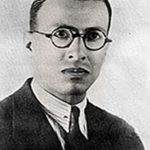 He was a palestinian nationalist poet with distinction, He was born in Nablus and grew up here. He continued his studies in literature at the American University of Beirut from 1923 to 1929. He then worked as a professor of Arabic literature at The National University of Success in Nablus, where he spent a year witnessing a large-scale uprising in the country. This influenced Tuqan in the writing of national poems. He later worked in two jobs, one of which was a professor at the American University of Beirut and director of Arabic programs in the Arab section of Radio Jerusalem.
He was a palestinian nationalist poet with distinction, He was born in Nablus and grew up here. He continued his studies in literature at the American University of Beirut from 1923 to 1929. He then worked as a professor of Arabic literature at The National University of Success in Nablus, where he spent a year witnessing a large-scale uprising in the country. This influenced Tuqan in the writing of national poems. He later worked in two jobs, one of which was a professor at the American University of Beirut and director of Arabic programs in the Arab section of Radio Jerusalem.
Mawtani’s poem was the actual national anthem of Palestine until Palestine adopted its official anthem in 1996. In 2004, Iraq adopted the poem as its official national anthem. What is striking is that many Palestinians still sympathize with Mawtani alongside “Fedayadi” and consider the former a kind of unofficial second national anthem for their country.
About The Poet Fadwa Toukan (1917-2003)
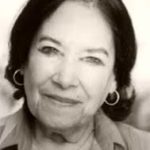 Also known as the “Poet of Palestine”. She is generally considered one of the best contemporary Arab poets. Sister of the poet Ibrahim Tuqan, I was born in Nablus in 1917 and grew up here. Her hair was a powerful foundation for female experiences of love, revolution and women’s protest against society. After the Nakba in 1948, I began writing about the occupation of the Palestinian territories. Then after the Six-Day War of 1967, I also started writing national poems.
Also known as the “Poet of Palestine”. She is generally considered one of the best contemporary Arab poets. Sister of the poet Ibrahim Tuqan, I was born in Nablus in 1917 and grew up here. Her hair was a powerful foundation for female experiences of love, revolution and women’s protest against society. After the Nakba in 1948, I began writing about the occupation of the Palestinian territories. Then after the Six-Day War of 1967, I also started writing national poems.
Her autobiography, “A Mountain Journey, A Difficult Journey”, was translated into English in 1990. Tuqan received the International Poetry Award, And the Jerusalem Prize for Culture and Arts, And the United Arab Emirates Award. She was also awarded the Cultural Order of Merit in 1996. Tuqan is widely regarded as a symbol of the Palestinian cause and is “one of the most prominent figures in modern Arabic literature.”

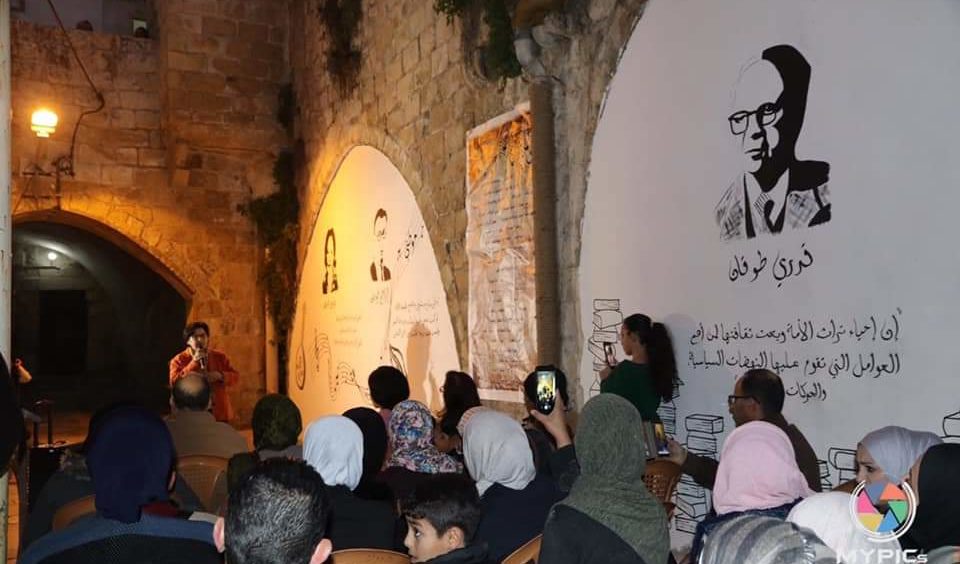
Comments are closed.